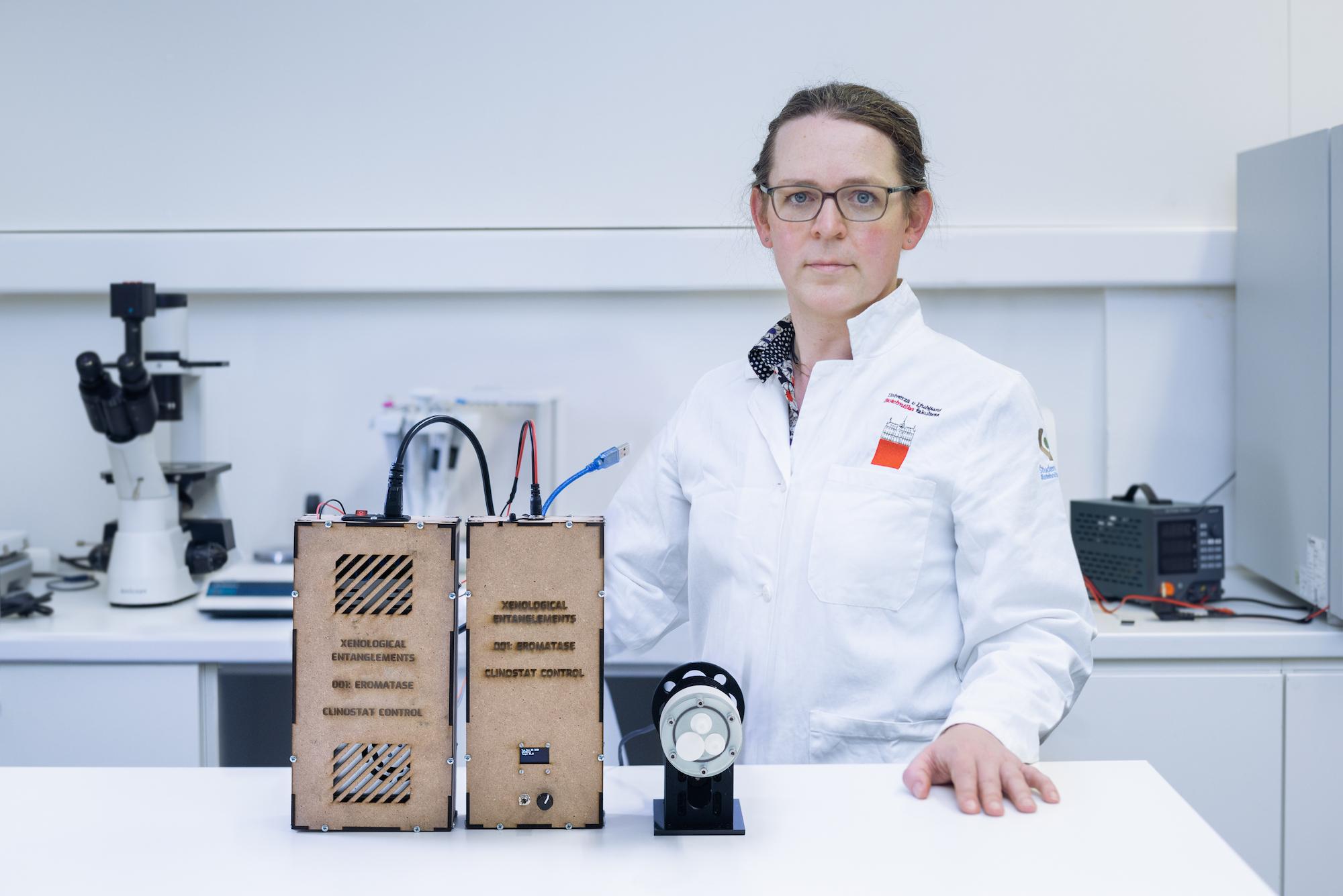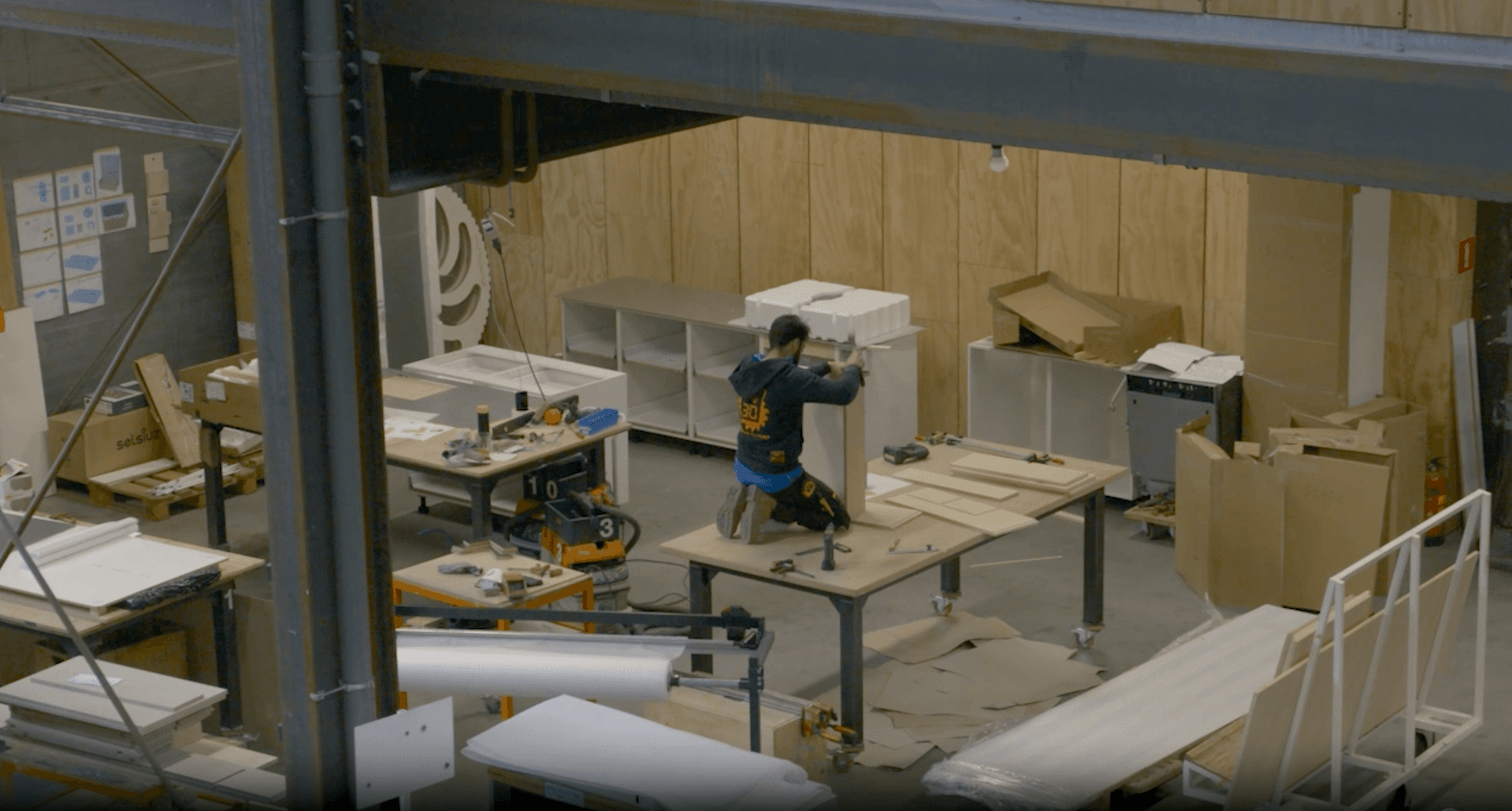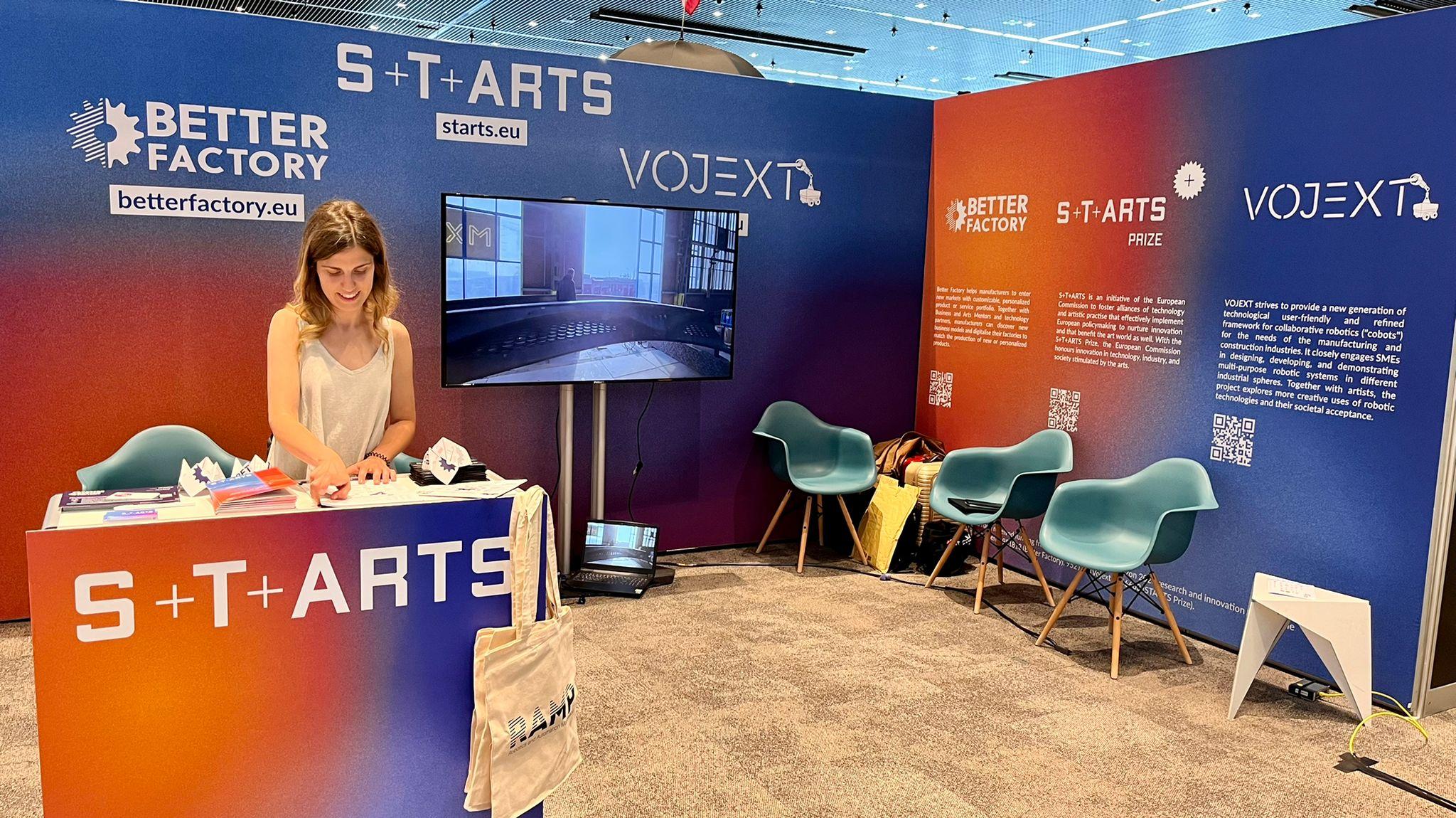Waag congratulates the winners of the 2021 Prix Ars Electronica! We are excited that some our partnering artists have been awarded from the more than 3.000 projects that were submitted from 86 countries, in the category of Artificial Intelligence & Life Art.
The “Golden Nicas” from the Prix Ars Electronica have been awarded annually since 1987 by an international jury and the prize winners in each category receive 10,000 euros. The “Awards of Distinction” receive 6,000 euros.
Adriana Knouf receives Award of Distinction
Waag’s artist in residence Adriana Knouf (US) receives an Award of Distinction from Ars Electronica. Congratulations! ‘The jury was wildly convinced by the personal story underlying the project, exposing the artist’s vulnerabilities while advocating for the acceptance of trans people in society.’

‘While we humans refer to potential outer-space life as ‘aliens,’ queer and transgender life on Earth is also, still, often referred to as ‘alien.’ tranxxeno lab by Adriana Knauf addresses the biochemical requirements of transgender persons in outer space, especially their need for hormone replacement medication, by sending such medication to the International Space Station and back, thus testing their overall resilience through all steps of space travel.’
‘As such, the TX-1 project addresses the political question of which bodies (do not) get accepted by established space programs, meanwhile transgender bodies may teach society at large how all bodies transition through their personal, societal, and environmental changes and that all of them require support and care, usually hidden and ignored, for their survival—in space and on Earth.’
Read more about her work: Dr. Adriana Knouf aims for transgender space travelling.
Museum of Edible Earth receives Award of Distinction
The Museum of Edible Earth from masharu (NL/RU) captivates the senses of the visitor through the simplicity of the sense of taste, while enabling access to the complex theme of the sacredness of the Earth and our relationship to it as human beings. The project is part of Waag’s planet B efforts and has been part of Museum Night Amsterdam 2019.

‘Whereas in recent centuries, the Earth was devaluated to dirt and appropriated as just a natural resource, masharu aims to re-introduce geophagy—the practice of eating earth and earth-like substances, such as clay and chalk, an ancient spiritual and healing practice in countries in Africa, Asia, and Latin America.’
‘During the Museum experience the participant is encouraged to touch, interact and taste, allowing for a personally evocative experience to contemplate a privileged relationship to the environment. With its 400 samples from 36 countries, The Museum of Edible Earth provides a unique insight into one of the traditional yet forgotten ways people worldwide relate to their immediate surroundings.’
‘The jury especially appreciates the way the public can viscerally interact with this collection through tasting and eating, in addition to the convincing storytelling.’
Špela Petrič receives Honorary Mention
We congratulate Waag fellow and Smart Hybrid lab researcher Špela Petrič (SI) with an honorary mention from Ars Electronica. She receives it for her work PL’AI, an installation about the playful interaction between plants, machines and humans. Petrič: ‘I wanted to reframe our relationship with plants through play. With plants you don’t see emotions like play and pleasure, but does that mean that it doesn’t exist?’

From the jury: ‘Petrič steps with this bold move into new territory. Colorful bouncy balls: the tendril searches for something to grab on to. Once the plant grabs hold of one of the bouncy balls, which is captured by the camera, this signals the AI to stop that ball from moving.’
‘The piece emphasizes an explicit plant interest, the AI robot does obey vegetal desires. This plant-centric viewpoint also ironically undermines any commercial corporate pragmatism, as the plant is not here to serve. The vegetal growth behavior, however, challenges us humans, since it is for us only visible with the technological help of a time lapse.’
We recently talked with Spela. Read more about PL’AI: Where plant and machine playfully meet.
UNBORN0x9 receives Honorary Mention
This multi-faceted art installation by Shu Lea Cheang (US), Ewen Chardronnet (FR) and FUTURE BABY PRODUCTION (FR) embraces an important discursive field in current biopolitics and bioethics: ectogenesis, artificial wombs, and surrogacy are some of the main aspects among many here. The artists are part of Art4Med, a European consortium in which Waag is also represented.

‘Starting from artistic research to explore ultrasound, the collective translates their investigations on an intensely controversial topic into various formats, including hands-on units in software coding, installations, performances, and public talks. The jury welcomes the open discursive format as it offers the necessary space and development for discussions to unfold—on yet undefined bioethical territories that have been part of Science Fiction since Aldous Huxley’s “Brave New World,” and which are actually being realized in research with other mammals, and soon with humans, too.’


